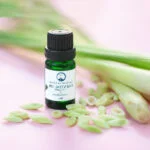Is it safe to use aromatherapy oils during pregnancy? This question may arise among expectant mothers who wish to incorporate these natural remedies into their wellness routines.
Aromatherapy oils have gained popularity for their various therapeutic benefits, but concerns about their safety during pregnancy caution some individuals. In this article, we will explore the use of aromatherapy oils during pregnancy, focusing on the potential benefits, concerns, research findings, guidelines for safe usage, best practices, and potential risks associated with their use.
Aromatherapy oils are concentrated extracts derived from plants that are used for their aromatic and therapeutic properties. These oils are commonly used in holistic practices to promote physical, emotional, and mental well-being. Essential oils such as lavender, peppermint, and chamomile are popular choices for addressing a wide range of issues like stress relief, insomnia, nausea, and skin conditions. However, when it comes to using aromatherapy oils during pregnancy, expectant mothers should exercise caution and be informed about potential risks.
While aromatherapy oils can offer numerous benefits for overall health and wellness, pregnant women often have concerns about their safety when used during this crucial period. Questions regarding potential adverse effects on fetal development or maternal health may lead to hesitancy in incorporating these natural remedies into prenatal care routines.
To address these concerns and provide clarity on the topic of using aromatherapy oils during pregnancy, it is essential to examine existing research studies and guidelines recommended by experts in the field.
What Are Aromatherapy Oils
Aromatherapy oils, also known as essential oils, are highly concentrated plant extracts that have been used for centuries for their therapeutic properties. These aromatic oils are derived from various parts of plants such as flowers, leaves, bark, roots, and fruits through processes like distillation or cold pressing. Each essential oil carries a distinct fragrance and composition that can impact physical, emotional, and mental well-being.
Types of Aromatherapy Oils
There are numerous types of essential oils available in the market, each with its own unique benefits. Some popular aromatherapy oils include lavender, peppermint, tea tree, eucalyptus, chamomile, and rosemary. Lavender oil is commonly used for relaxation and promoting sleep quality.
Peppermint oil is known for its energizing effects and may help alleviate headaches. Tea tree oil is often used for its antimicrobial properties to treat skin conditions. It is crucial to choose high-quality essential oils from reputable sources to ensure purity and efficacy.
Methods of Using Aromatherapy Oils
Aromatherapy oils can be utilized in various ways to experience their therapeutic effects. Inhalation by using a diffuser or adding a few drops to hot water can help reap the benefits of these oils through the sense of smell.
Topical application by diluting essential oils with a carrier oil like coconut or almond oil before applying them to the skin can aid in absorption and reduce the risk of irritation. Some individuals may also benefit from adding a few drops of certain essential oils to bathwater for a relaxing aromatherapy experience.
Benefits of Aromatherapy Oils
Aromatherapy oils, also known as essential oils, have been used for centuries for their various therapeutic properties. These concentrated plant extracts are often used in aromatherapy to promote physical and emotional well-being. The benefits of using aromatherapy oils during pregnancy can be significant, providing relief from common pregnancy-related symptoms such as nausea, fatigue, stress, and aches and pains.
Here are some of the key benefits of using aromatherapy oils during pregnancy:
- Relief from nausea: Certain essential oils like ginger or peppermint can help alleviate morning sickness and digestive issues.
- Reduced stress and anxiety: Aromatherapy oils like lavender or chamomile can promote relaxation and reduce feelings of anxiety and stress.
- Improved sleep quality: Essential oils like mandarin or clary sage may help promote better sleep quality for pregnant women experiencing insomnia or restlessness.
It is important to note that while aromatherapy oils can offer many benefits during pregnancy, it is essential to use them with caution and under the guidance of a qualified healthcare provider. Pregnant women should always consult with their healthcare provider before incorporating any new products into their wellness routine.
- Always dilute essential oils properly before use to avoid skin irritation or sensitivities.
- Avoid ingesting essential oils unless under the supervision of a healthcare provider.
- Choose high-quality, pure essential oils from reputable sources to ensure safety and efficacy.
By following these guidelines and best practices, pregnant women can safely enjoy the benefits of aromatherapy oils throughout their pregnancy journey.
Common Concerns About Aromatherapy Oils and Pregnancy
Increased Sensitivity During Pregnancy
During pregnancy, many women experience heightened senses, including a heightened sense of smell. This increased sensitivity can make certain scents, including those from aromatherapy oils, overwhelming or even nauseating for some expectant mothers. It is essential to be aware of this potential reaction and choose essential oils that are gentle and soothing rather than overpowering.
Potential Hormonal Effects
Another concern regarding the use of aromatherapy oils during pregnancy is the potential hormonal effects they may have on both the mother and the developing baby. Some essential oils have been shown to influence hormone levels in the body, which could potentially affect the delicate balance required during pregnancy. It is crucial to consult with a healthcare provider before using any aromatherapy oils to ensure they are safe for both mother and baby.
Risk of Allergic Reactions
Just like with any skincare or beauty product, there is always a risk of allergic reactions when using aromatherapy oils during pregnancy. Some essential oils can be potent and may cause skin irritation or other allergic reactions in sensitive individuals.
Pregnant women should perform a patch test before using any new essential oil and dilute them properly to reduce the risk of adverse reactions. Consulting with a healthcare provider before incorporating aromatherapy oils into their routine is always recommended to ensure safety for both mom and baby.
Research and Studies on the Safety of Aromatherapy Oils During Pregnancy
During pregnancy, many women turn to natural remedies to help manage symptoms and promote relaxation. One popular option is aromatherapy oils, but the question remains: is it safe to use aromatherapy oils during pregnancy? Research and studies have been conducted to explore this topic and provide guidance for expectant mothers.
Several studies have been carried out to investigate the safety of aromatherapy oils during pregnancy. One study published in the Journal of Obstetrics and Gynaecology found that certain essential oils, such as lavender and chamomile, can be safely used during pregnancy when diluted properly. These oils were shown to help reduce anxiety and improve sleep quality in pregnant women without adverse effects on the mother or baby.
Another study published in the International Journal of Aromatherapy examined the effects of aromatherapy massage using a blend of essential oils on pregnant women. The results indicated that the aromatherapy massage helped reduce stress levels and enhance overall well-being during pregnancy. However, it is important to note that not all essential oils are safe for use during pregnancy, as some may trigger contractions or cause allergic reactions.
Overall, while research on the safety of aromatherapy oils during pregnancy is promising, it is crucial for expectant mothers to exercise caution and follow guidelines for safe use. Consulting with a healthcare provider or certified aromatherapist before using any essential oils is recommended to ensure the well-being of both mother and baby. By taking appropriate precautions and adhering to best practices, incorporating aromatherapy oils into a prenatal care routine can be a safe and beneficial experience for pregnant women.
Guidelines for Safely Using Aromatherapy Oils During Pregnancy
Aromatherapy oils can be a wonderful addition to a pregnant woman’s routine, providing relaxation, stress relief, and even potential relief from common pregnancy discomforts. However, it is crucial to use these oils safely during pregnancy to ensure the well-being of both the mother and the baby. Many expectant mothers wonder, “Is it safe to use aromatherapy oils during pregnancy?” The answer is yes, but with caution and following certain guidelines.
When using aromatherapy oils during pregnancy, it is important to dilute them properly before applying them topically or using them in a diffuser. Essential oils are highly concentrated substances that can potentially cause skin irritation or sensitivity if used undiluted.
It is recommended to mix essential oils with a carrier oil such as almond oil or coconut oil before applying them on the skin. Additionally, using a lower concentration of essential oil in a diffuser can help prevent overwhelming the senses.
Another important guideline for safely using aromatherapy oils during pregnancy is to avoid certain essential oils that are known to be unsafe for expecting mothers. Essential oils like sage, rosemary, and peppermint are believed to have stimulating effects that could potentially trigger contractions or affect hormone levels. It is best to consult with a healthcare provider or a qualified aromatherapist before using any essential oil blends during pregnancy.
Best Practices for Using Aromatherapy Oils During Pregnancy
Aromatherapy can be a wonderful way to relax and unwind during pregnancy, but it is essential to use caution and follow best practices to ensure the safety of both yourself and your baby. Here are some guidelines to consider when incorporating aromatherapy oils into your pregnancy routine:
- Consult with your healthcare provider: Before using any essential oils during pregnancy, it is crucial to consult with your healthcare provider or a qualified aromatherapist. They can provide personalized recommendations based on your specific health needs and any underlying conditions.
- Choose safe essential oils: Not all essential oils are considered safe for use during pregnancy. Some oils may trigger contractions or have other adverse effects on you or your baby. It is best to stick to gentle, pregnancy-safe essential oils such as lavender, chamomile, and citrus oils.
- Dilute the oils properly: Essential oils are highly concentrated substances and should always be diluted before use, especially during pregnancy. To create a safe and effective blend, mix a few drops of the essential oil with a carrier oil such as coconut oil or almond oil.
Proper application techniques are also important when using aromatherapy oils during pregnancy:
- Avoid direct application on the skin: During pregnancy, it is best to avoid applying undiluted essential oils directly on the skin. Instead, consider using a diffuser or adding a few drops of oil to a warm bath for a more diluted effect.
- Be mindful of sensitivities: Pregnancy can make you more sensitive to certain scents and ingredients. Pay attention to how your body reacts to different oils and discontinue use if you experience any adverse effects such as headaches or nausea.
- Maintain good ventilation: When using aromatherapy oils in your home, ensure that the room is well-ventilated to prevent overwhelming scents from becoming too potent. This can help minimize any potential respiratory issues that may arise from prolonged exposure.
By following these best practices for using aromatherapy oils during pregnancy, you can safely enjoy the benefits of these natural remedies while prioritizing both your well-being and that of your developing baby. Remember that every individual is unique, so it’s important to listen to your body’s cues and seek professional advice if you have any concerns about using essential oils during this special time.
Potential Risks and Precautions to Take
During pregnancy, it is natural for women to be concerned about the safety of using aromatherapy oils. While many essential oils have proven benefits, there are also potential risks that need to be taken into consideration. One of the main concerns is that some essential oils may trigger contractions or affect hormone levels in pregnant women. It is crucial to consult with a healthcare provider before incorporating any new aromatherapy oils into your routine during pregnancy.
Certain essential oils are known to be uterine stimulants and should be avoided during pregnancy. Oils such as clary sage, rosemary, and cinnamon leaf are commonly considered risky for use by expecting mothers. Additionally, some oils may cause skin irritation or allergic reactions, which could be harmful during this sensitive time. It is recommended to perform a patch test before using any new essential oil and dilute them properly with a carrier oil to reduce the risk of adverse reactions.
When using aromatherapy oils during pregnancy, it is vital to follow specific precautions to ensure both the mother and baby’s safety. It is advisable to avoid using essential oils in their undiluted form, especially topically or through inhalation.
Pregnant women should also be mindful of potential interactions between certain essential oils and medications they may be taking. Overall, practicing caution and seeking guidance from a healthcare professional can help alleviate concerns about the safe use of aromatherapy oils during pregnancy.
Conclusion
Aromatherapy oils have been used for centuries to promote relaxation, reduce stress, and improve overall well-being. However, when it comes to using aromatherapy oils during pregnancy, there are valid concerns about the safety of these essential oils. Expectant mothers often wonder: is it safe to use aromatherapy oils during pregnancy?
Research and studies on the safety of aromatherapy oils during pregnancy have provided mixed results. While some essential oils are considered safe to use in moderation, others may pose risks to both the mother and the developing fetus. It is crucial for pregnant women to be cautious and well-informed when incorporating aromatherapy oils into their routine.
To ensure the safety of using aromatherapy oils during pregnancy, it is recommended to consult with a healthcare provider before starting any new regimen. Additionally, pregnant women should follow specific guidelines for safe use, such as diluting essential oils properly, avoiding certain oils known to be harmful during pregnancy, and practicing good ventilation when diffusing oils. Ultimately, the key is to approach aromatherapy with caution and prioritize the well-being of both mother and baby.
Frequently Asked Questions
Can You Use Aromatherapy Oils When Pregnant?
Aromatherapy oils can be used during pregnancy, but it is important to consult with a healthcare provider before doing so. Some essential oils may not be safe for pregnant women due to potential risks to the baby.
What Essential Oils Are Not Safe for Pregnancy?
Some essential oils that are not considered safe for pregnancy include basil, cinnamon, clove, fennel, oregano, and thyme. These oils have properties that may stimulate contractions or cause other adverse effects on the developing fetus.
What Body Oils Are Safe During Pregnancy?
Body oils that are safe to use during pregnancy include almond oil, coconut oil, and jojoba oil. These natural oils are gentle and moisturizing for the skin without containing any harmful ingredients that could potentially harm the mother or baby.

Are you looking for a natural way to improve your health and wellbeing?
If so, aromatherapy may be the answer for you.





